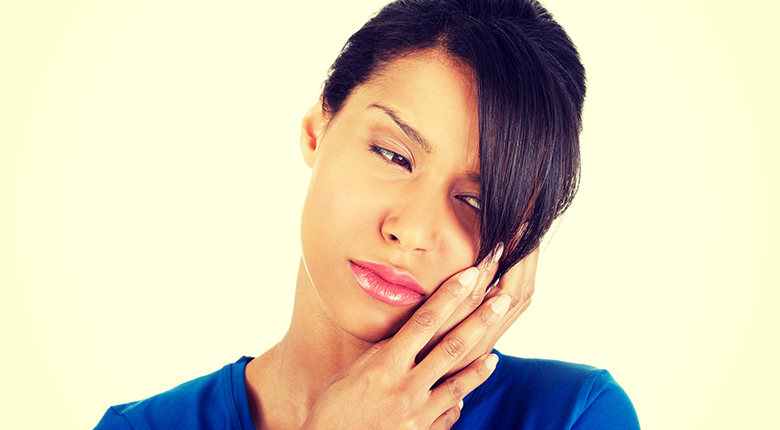
Like many routine health concerns, both may be resolved quickly and simply, or might require more complex treatment, depending on the cause.
Believe it or not, your bite can be a contributing factor to such pain or dysfunction because of the inter-connected nature of the human musculoskeletal system. Since the teeth, jaw joints, neck muscles, and head posture are related, a problem in any one area can affect the others, sometimes resulting in symptoms such as painful clicking or popping of the jaw, commonly diagnosed as temporomandibular joint disorder, or TMJ (also known as TMD). In addition, bite and jaw irregularities can contribute to head and neck pain, swallowing problems, posture problems, headaches, migraines and excessive snoring or sleep apnea.
In order to make a diagnosis, a neuromuscular dentist will review your medical history and will perform a physical examination of your teeth, head and neck. When indicated, tests using non-invasive electronic instruments can also help with diagnosis. If these tests identify your natural bite as a probable cause of your condition or pain, the TMJ dentist (or TMD dentist) can then identify a more desirable, less painful jaw position while the jaw muscles are in a relaxed state. This new jaw position is called neuromuscular occlusion.
Treatment
Treatment for TMJ can include full mouth reconstruction or a custom orthotic. An orthotic is a custom-made dental appliance which can either be worn over the teeth or affixed to them in order to maintain the desired bite position. NTI type orthotics interrupt the body's natural NTI (nocireceptive trigeminal inhibition) reflex, which can cause jaw tension and subsequent head and neck pain. These orthotics are FDA-approved and extremely effective in the prevention of chronic migraine pain.
| Monday - Friday : | 8:00am - 6:00pm |
| Saturday: | 7:00am - 3:00pm |
| Sunday: | Closed |